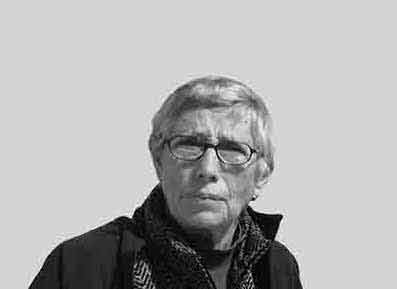Rise to the top

Michael Jansen
The author, a well-respected observer of Middle East affairs, has three books on the Arab-Israeli conflict.

Christiane Amanpour
Neutrality should never be an option for serious journalists, she argues. In this era of political correctness and warfare, journalists have a hard time resisting the flow of propaganda disguised as news and political pressures to conform. She has not always succeeded with truthful independence, but she has consistently declared her determination to resist accusations of a lack of “objectivity.”
Four decades ago, Amanpour was working in the technical department of a local television channel when she learned CNN — which had been launched in 1980 — was looking for staff. When she was interviewed, Amanpour was promptly hired. “The then-recruiter took one look at me and said, ‘Oh, there’s a vacancy on the foreign desk. You’re foreign. Go fill it.’” She needed the job, however lowly, as she had only $100 to live on and a single suitcase of belongings.
She secured the job as a desk assistant. She said this was at the “very, very bottom...you could not get any lower and you could not be paid any less.” She accepted this post as it enabled her step-by-step transition from technician to foreign correspondent. Constant coverage of the 1991 US-led war to liberate Kuwait from Iraq projected CNN onto the world television broadcast scene and gave Amanpour the chance to shine with reporting from Saudi Arabia. She rose to anchor and host of her own programme.
Her determination to be truthful in reporting emerged during the war in fractured Yugoslavia while Serbs attacked the open city of Sarajevo and massacred Bosnian Muslims. At that time, she was accused of being one-sided and her objectivity was questioned. She rejected criticisms and continued to report as she saw fit from conflict zones.
She told a gathering of CNN staff celebrating her anniversary, “I was witnessing, along with my colleagues, who the aggressors were. There was no equivalence either factually or morally. And I didn’t present any equivalence. There was no, ‘On the one hand, on the other hand.’ In situations of gross violations of human rights … you cannot be neutral because then you are an accomplice.” Exactly!
She added, “And it applies to everything. Whether you’re covering Donald Trump, whether you’re covering the climate crisis, whatever you’re covering — you absolutely have to be truthful, which does not mean unobjective. Objective means cover all sides. It does not mean come to the same judgment about all sides.”
Amanpour was born in January 1958 in London. Her father was Mohammad Taghi Amanpour, an Iranian, and her mother Patricia Anne Hill was British. Christiane Amanpour lived in Tehran until she was 11 and had completed her primary education. The family went to London during the 1980-88 Iran-Iraq war which followed the 1979 ouster of the shah by the clerical revolution. She completed secondary education in Britain before shifting to the US where she earned a BA in journalism at the University of Rhode Island.
Once she began reporting for CNN, she covered events in the Balkans, Iraq, Afghanistan, Palestine, Iran, Israel, Pakistan, Somalia, Rwanda, and the United States. She interviewed Iranian presidents Mohammad Khatami, Mahmoud Ahmadinejad, and Hassan Rouhani; the presidents of Afghanistan, Sudan, Syria, and France; prime ministers Tony Blair of Britain and Angela Merkel of Germany; the Dali Lama, former US presidential candidate Hillary Clinton and ex-President Barack Obama.
Her work at CNN was disrupted from March 2010 until January 2012 when she shifted to ABC news where she was offered a prestigious weekly programme. She then resumed her career with CNN where she conducts hour-long interview programmes five times a week. She has received multiple honours for her work. She was appointed UN ambassador for Freedom of Expression and Journalist Safety.
Amanpour is not alone among distinguished female foreign correspondents on the job for 40 years. Her contemporary Lyse Doucet, a Canadian, has been employed by the BBC, first in 1983 as a freelancer in Africa, and from 1988 as a full timer. She has covered all major regional conflicts in this region since then, including the 2011 Arab Spring unrest, the chaotic US withdrawal from Afghanistan in 2021, and the 2022 Russian invasion of Ukraine.
Orla Guerin is an Irishwoman who has made a long career in the BBC of covering crises in the Middle East and further afield. She began reporting for The Sunday Tribune in Dublin before joining Irish radio and television news in 1987 as its youngest foreign correspondent. In 1990, she covered events in Eastern and Central Europe during the dissolution of the Soviet Union. In 1995 she was recruited by the BBC and began corresponding from conflict zones, Jerusalem, and Johannesburg.
The long-lasting broadcast media careers of these three women have encouraged sisters around the world to try to emulate their work in the field as well as presenters and interviewers. While CNN, the BBC and Al-Jazeera have recruited female talking heads, entry into the prized position of foreign correspondent remains difficult for women as well as men. Securing foreign correspondent posts in print media is also a major challenge.
Photo: TNS







